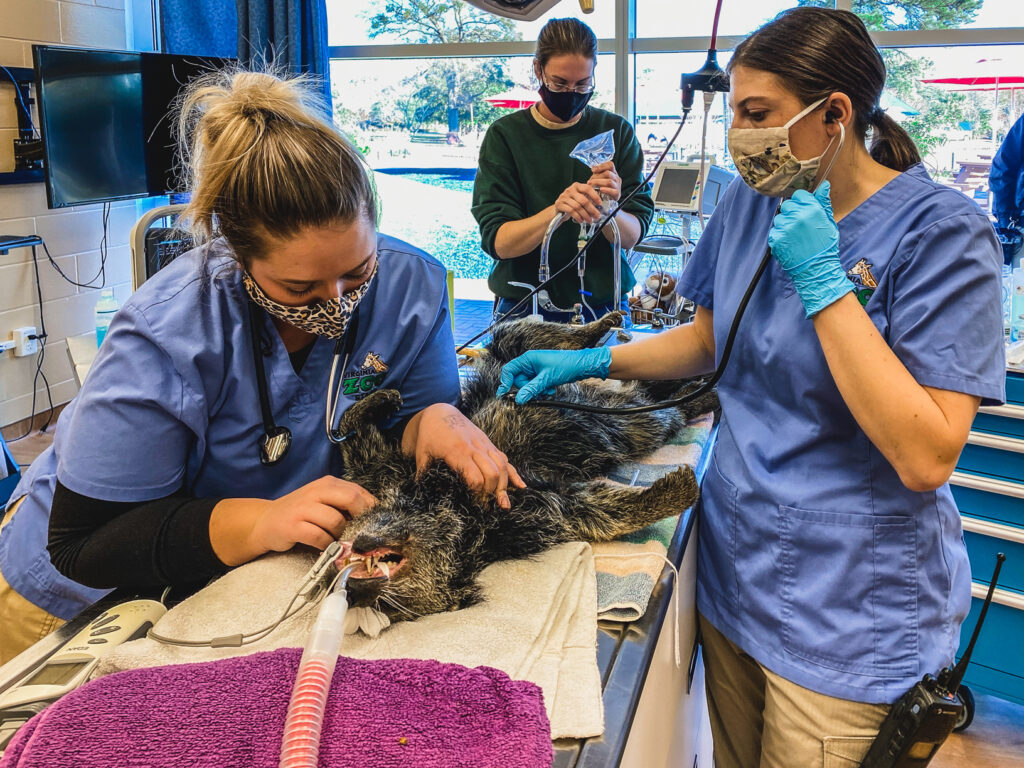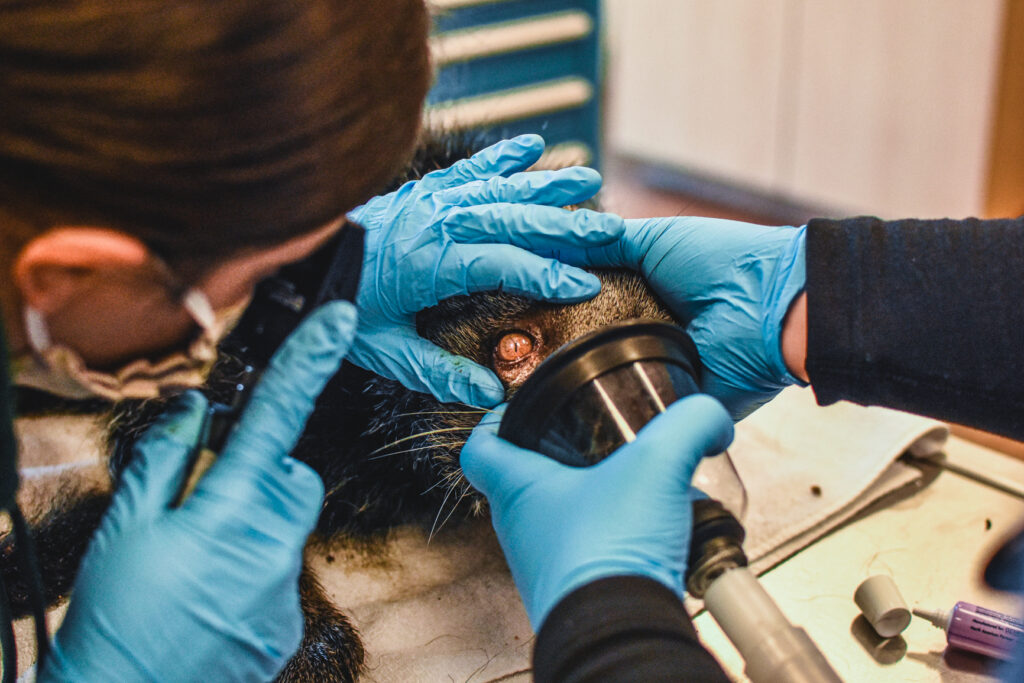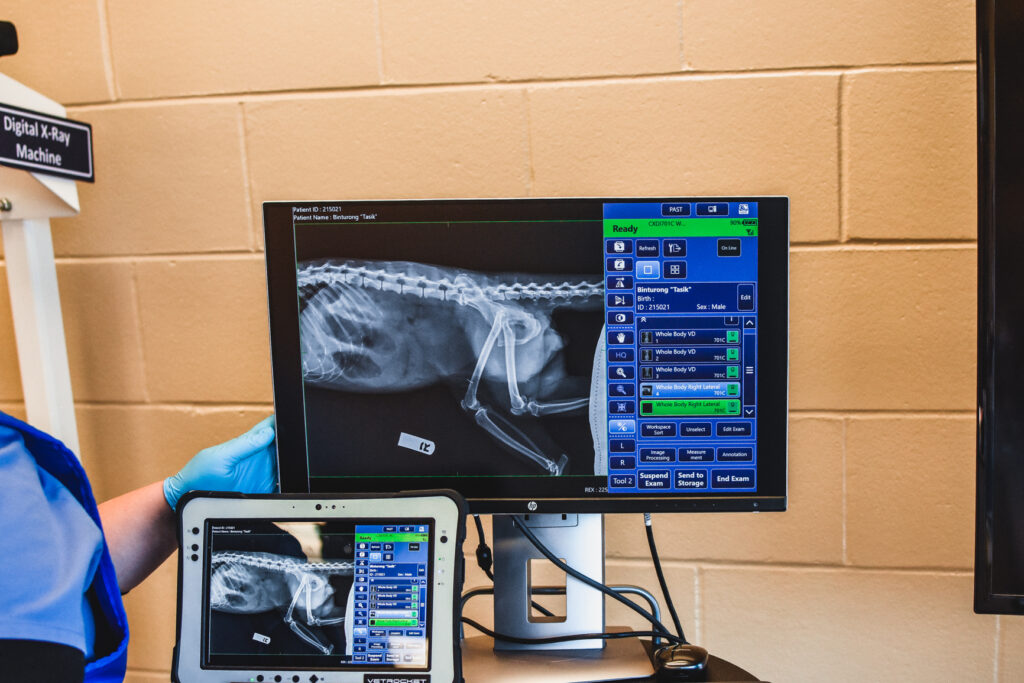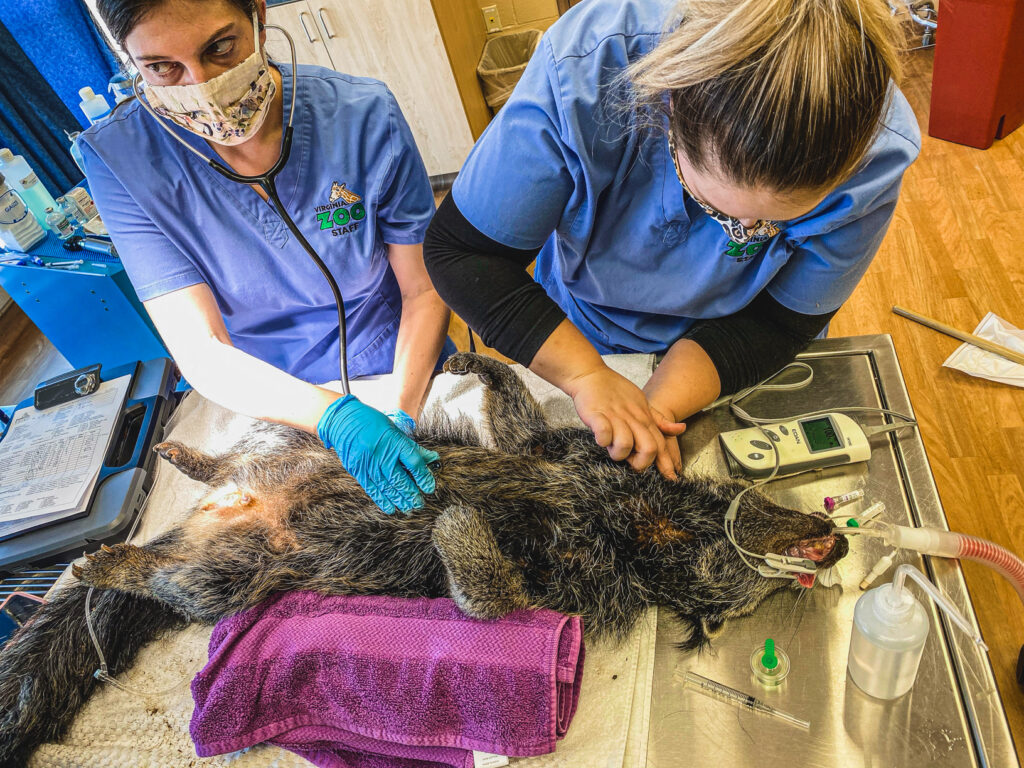Tasik’s Treatment Plan
Zoo Keepers have many responsibilities – feeding the animals, providing enrichment opportunities, cleaning, performing exhibit maintenance, inspiring guests, cultivating future conservationists, training the animals and making sure exhibits are safe and secure. However, Keepers also have another very important task: noticing subtle, abnormal behaviors in the animals. It is because of our Zoo Keepers’ swift actions that the Zoo’s Veterinarian, Dr. Tara Reilly, was recently called in to see what was causing unusual behaviors in the Zoo’s 20-year-old geriatric male binturong, Tasik.
Binturongs are arboreal, and Tasik can usually be spotted napping on the highest perches in his exhibit. When Keepers noticed this avid climber reluctant to shift onto exhibit or participate in a training session, they became concerned. As Tasik was also showing some physical signs of discomfort, Animal Care Staff informed the Veterinary department and an exam was immediately scheduled at the Animal Wellness Campus.
Dr. Reilly conducted a thorough physical examination under anesthesia, which included bloodwork, urinalysis, radiographs, ultrasound and a dental exam and cleaning. Dr. Reilly concluded that Tasik is in excellent body condition and weight but like many elderly animals his age, he has developed dental disease. Results from Tasik’s bloodwork and ultrasound also revealed that Tasik is in end stage liver disease. The radiographs showed signs of significant arthritis in his spine, and the urinalysis revealed he also likely is in kidney failure. These findings are all common in geriatric binturongs, and do not reflect on the quality-of-life Tasik is expected to have.

Dr. Reilly and Keepers have tailored a comprehensive treatment plan for Tasik to help him stay happy, healthy, and pain-free as he enjoys his final stage of life. These include liver and kidney supplements to help slow the progression of the disease, as well as joint supplements and pain medications for his arthritis. Dr. Reilly has also instructed staff in the Zoo’s Diet Kitchen to switch Tasik’s diet to strictly soft foods, like steamed vegetables, to make it easier for the binturong to eat with his aged teeth.
Tasik’s treatment appears to be working for him as he is now back outside enjoying his life. This sprightly binturong can be seen along the Asia – Trail of the Tiger. Binturongs are nocturnal and sleep during the day, so please be sure to let Tasik have his rest if you see him curled up in his favorite spot!



